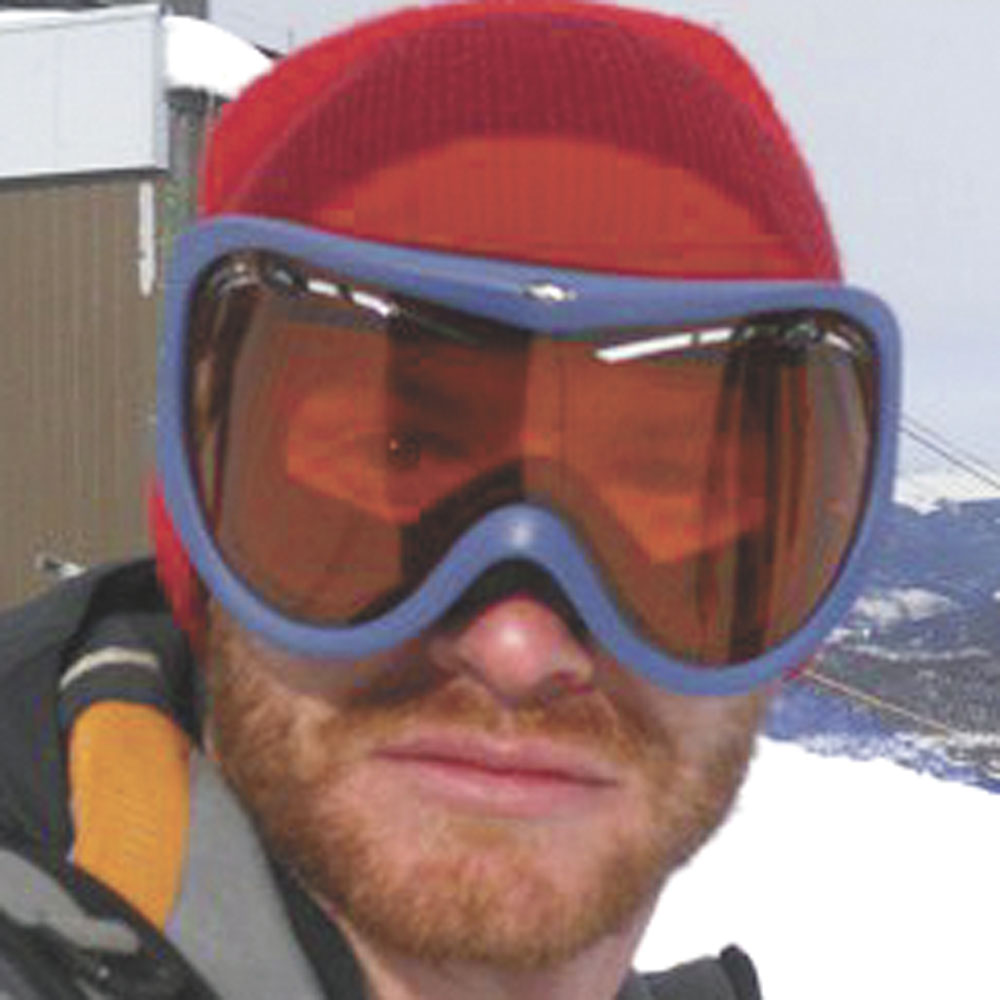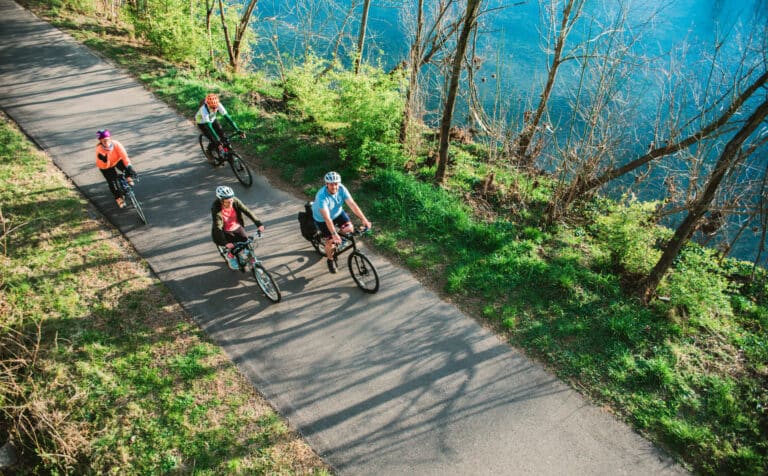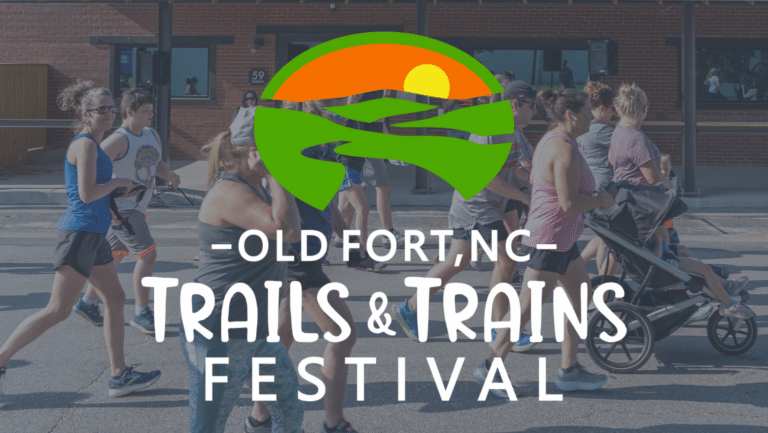Outdoor Programs Fight the Battle of the Bulge
Maybe it was the invention of country-fried steak. Or possibly it’s because there’s a Cracker Barrel every third interstate exit. Whatever the reason, the South is tipping the scales more than any other region in the United States.
Nine of the top 10 most obese states in the country sit below the Mason-Dixon Line, according to the latest statistics from the Centers for Disease Control and Prevention (CDC). Mississippi currently stands atop the list of heavyweight states with 32 percent of adults categorized as obese. Alabama, Tennessee, West Virginia, Kentucky, and South Carolina also made the top 10, while Georgia and North Carolina were in the top 20. Reasons cited for the South’s place at the head of the obesity table include diets high in fatty, fried foods and people living in rural, often impoverished isolation, which promotes less physical activity.
Last fall Huntington, W.Va., was given the dubious distinction of being the fattest city in America with the CDC reporting that nearly half of the metro area residents are obese—far more than any other city in the nation. One-third of Huntington’s 50,000-person population doesn’t exercise and one-fifth has heart disease.
“In West Virginia we have problems from economic and geographic standpoints,” says Dr. Tom Dannals, a family physician in Huntington. “We don’t have big businesses providing gyms or financial incentives to join health clubs. We also don’t have shoulders, let alone bike lanes, on our windy roads.”
Of course, America’s well-publicized weight problem is not limited to the South. Almost 60 million people or one-fifth of Americans are overweight and 40 million are classified as obese. One-quarter of the country lives a lifestyle that is completely sedentary, and one-third of children are now overweight or obese. Such a widespread problem certainly extends beyond infrastructure and economic woes.
“There are problems everywhere,” says Dannals. “It sounds odd, but it’s almost become normal in society to be overweight. People have become complacent with their luxuries. They have their abundant food and their computers and they’re not out there running.”
It’s no secret that winning the battle of the bulge generally requires two main commitments: proper diet and exercise. To reduce the risk of chronic disease the CDC recommends at least 30 minutes of a moderate physical activity every day. To take it a step further and manage body weight, people should get approximately 60 minutes of moderate exercise most days of the week while not exceeding individual calorie needs. Losing weight will also require reducing calories. If you want to drop up to two pounds a week, cut back between 500-1,000 calories per day.
But when individual willpower seems to be failing, is it time for intervention? Action is starting to be taken at the local, state, and national levels to change the South’s less than slim image. Last November, every state from the South sent representatives to a Southern Obesity Summit that took place in Birmingham, Ala., to plan a network strategy to promote healthier living.
Dannals started a program called Healthy Huntington to help his community get active. The initiative has included helping build a downtown trail along the Ohio River, which flows through Huntington, and starting a series of races, which includes the St. Mary’s Medical Center Tri-State Triathlon, the Children’s Tri-State Triathlon, the Marshall University Marathon and Half-Marathon, and a five-mile walk. Dannals intentionally makes the races affordable community events without the usual competitive intimidating atmosphere.
“I want to emphasize in these events that exercise is fun,” he says. “My goal is to change things. I want people to have good experiences and want to do these races again.”
As childhood obesity continues to be a national concern, kids are also being targeted in efforts to get people active. Dannals was given a grant by the state of West Virginia to host a youth triathlon camp every year, which has become a popular sell-out event in Huntington. In North Carolina, where nearly 20 percent of children between the ages 10-17 are overweight, the Wellspring Adventure Camp was one of the first organizations to offer a mountain sports program intended to help kids lose weight. In the mountains about an hour west of Asheville, Wellspring incorporates a scientifically based weight loss program that cuts calories and fat grams with pound-shedding adventure activities like rock climbing, backpacking, and whitewater rafting.
In addition to changing diet patterns and attempting to instill active lifestyles through fun adventure sports, Wellspring also follows up with campers throughout the year after their session to provide assistance with weight monitoring. Parents are also held accountable with a two-day workshop that helps provide the right support for kids.
“The idea is that we’re creating something sustainable,” says Jessie Dean, the program director at Wellspring. “Making it fun is a huge part of it. The outdoors is an amazing outlet for kids to gain self-confidence and overcome obstacles. It’s not just coming to a diet camp for a short-term fix. We’re looking to provide education so campers can return home and continue to lose weight or maintain their weight loss and live a healthier lifestyle.”
WEIGHT LOSS GETAWAY
In addition to weight loss camps and clubs for kids, Wellspring (www.wellspringweightloss.com) also offers adventure retreats for adults geared to produce rapid weight loss. The activity-intensive programs include eight hours of biking, hiking, sea kayaking, and yoga each day, along with proper nutritional instruction. Retreats will be offered this year on March 2-10 and April 11-19 on the South Carolina Coast near Charleston and from June 11-19 at the Lands Creek Lodge in Western North Carolina. Options are also available for retreats in Texas and California.
The Canada-based Mountain Trek (www.hiking.com) also offers FitPath Boot Camp weight loss vacations that are based around high-intensity hiking, as well as strength training and core fitness. In addition to a program based out of the Bent Creek Bed and Breakfast near Asheville, N.C., there are also programs in Costa Rica and British Columbia.









